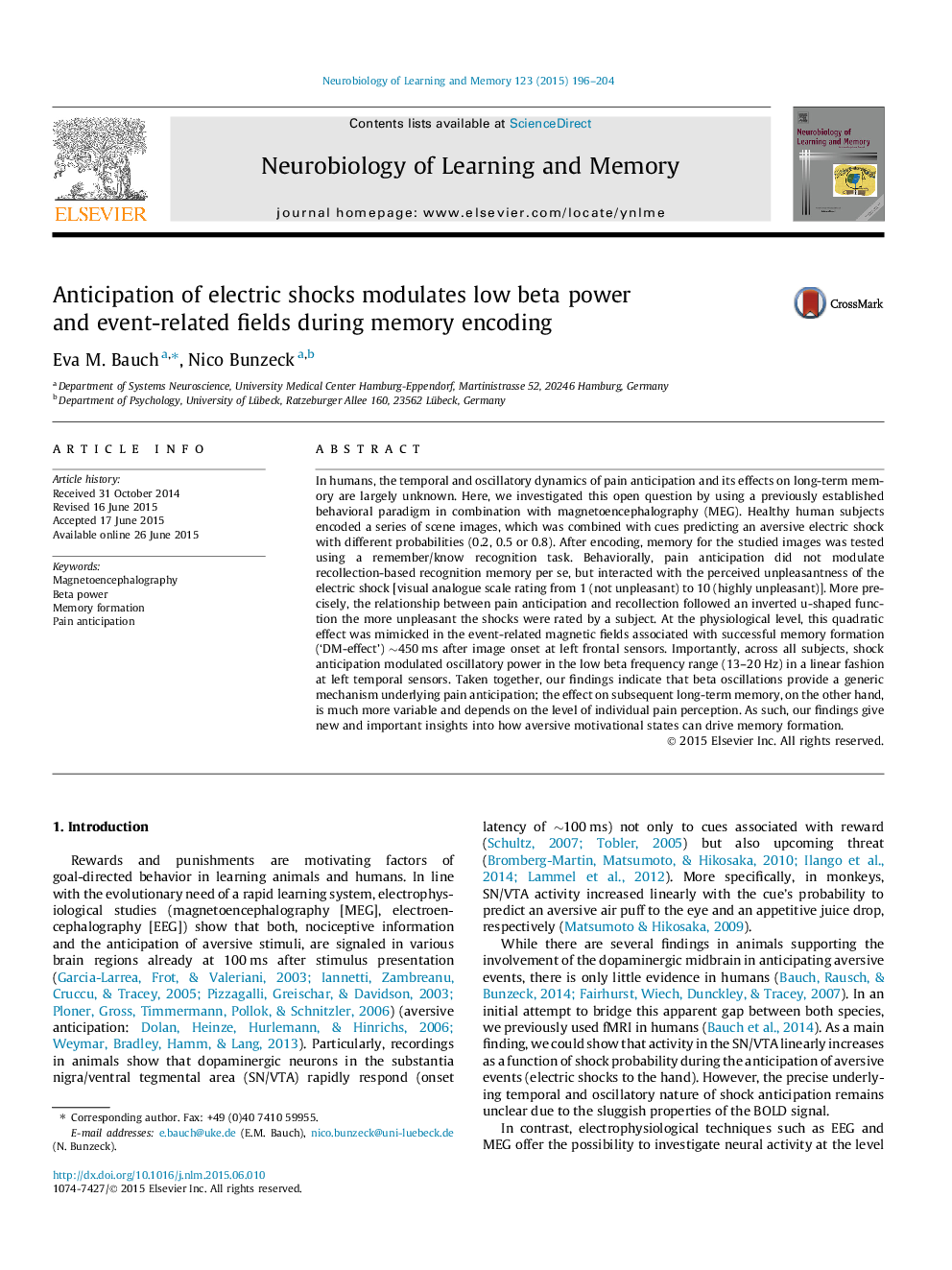| کد مقاله | کد نشریه | سال انتشار | مقاله انگلیسی | نسخه تمام متن |
|---|---|---|---|---|
| 936461 | 1475152 | 2015 | 9 صفحه PDF | دانلود رایگان |
• Shock anticipation modulates low beta power in a linear fashion.
• Unpleasantness of shock affects the impact of pain anticipation on recollection.
• Shock probability modulates encoding-related ERFs following an inverted u-shape.
In humans, the temporal and oscillatory dynamics of pain anticipation and its effects on long-term memory are largely unknown. Here, we investigated this open question by using a previously established behavioral paradigm in combination with magnetoencephalography (MEG). Healthy human subjects encoded a series of scene images, which was combined with cues predicting an aversive electric shock with different probabilities (0.2, 0.5 or 0.8). After encoding, memory for the studied images was tested using a remember/know recognition task. Behaviorally, pain anticipation did not modulate recollection-based recognition memory per se, but interacted with the perceived unpleasantness of the electric shock [visual analogue scale rating from 1 (not unpleasant) to 10 (highly unpleasant)]. More precisely, the relationship between pain anticipation and recollection followed an inverted u-shaped function the more unpleasant the shocks were rated by a subject. At the physiological level, this quadratic effect was mimicked in the event-related magnetic fields associated with successful memory formation (‘DM-effect’) ∼450 ms after image onset at left frontal sensors. Importantly, across all subjects, shock anticipation modulated oscillatory power in the low beta frequency range (13–20 Hz) in a linear fashion at left temporal sensors. Taken together, our findings indicate that beta oscillations provide a generic mechanism underlying pain anticipation; the effect on subsequent long-term memory, on the other hand, is much more variable and depends on the level of individual pain perception. As such, our findings give new and important insights into how aversive motivational states can drive memory formation.
Journal: Neurobiology of Learning and Memory - Volume 123, September 2015, Pages 196–204
